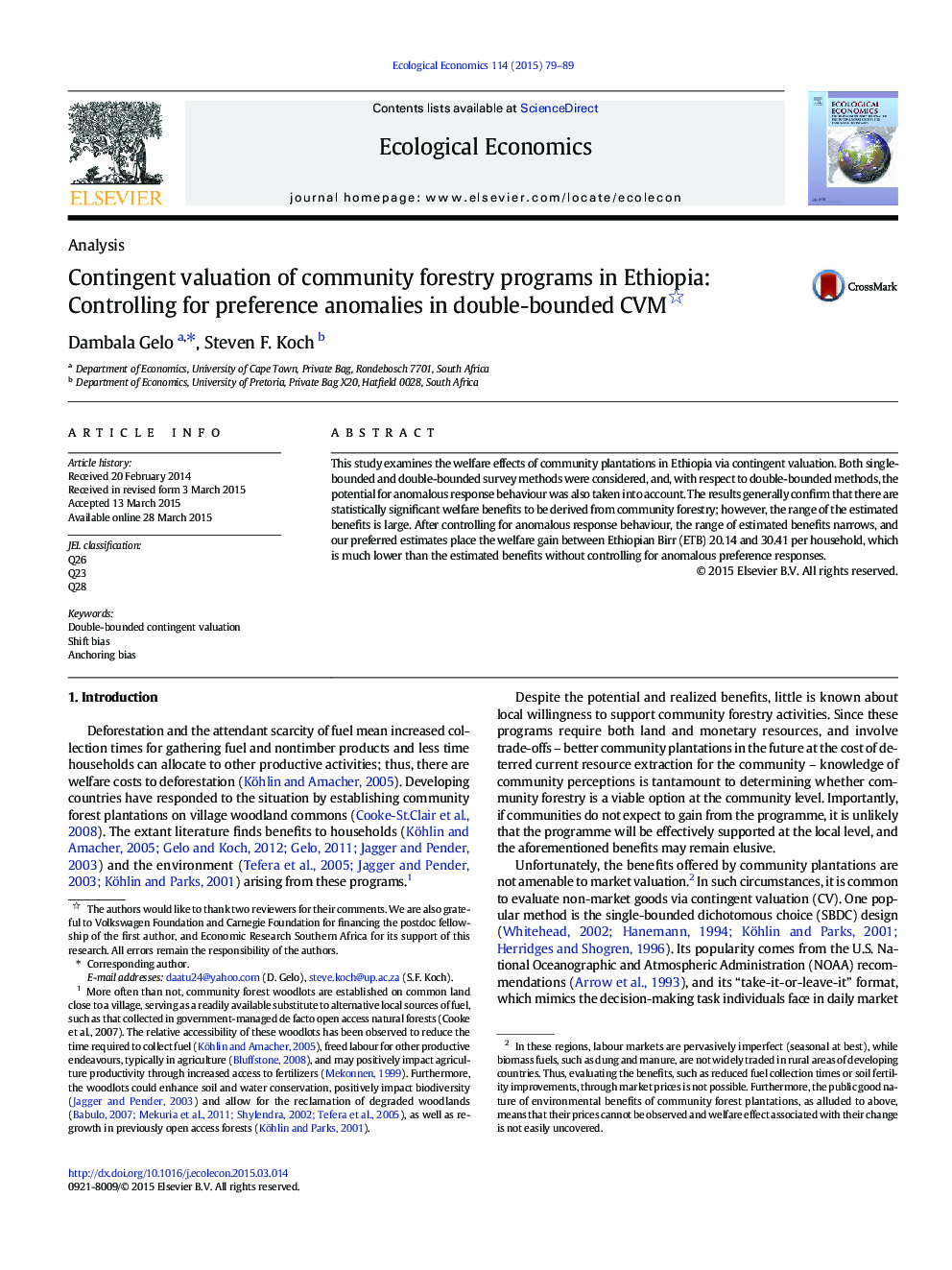| Article ID | Journal | Published Year | Pages | File Type |
|---|---|---|---|---|
| 5049327 | Ecological Economics | 2015 | 11 Pages |
This study examines the welfare effects of community plantations in Ethiopia via contingent valuation. Both single-bounded and double-bounded survey methods were considered, and, with respect to double-bounded methods, the potential for anomalous response behaviour was also taken into account. The results generally confirm that there are statistically significant welfare benefits to be derived from community forestry; however, the range of the estimated benefits is large. After controlling for anomalous response behaviour, the range of estimated benefits narrows, and our preferred estimates place the welfare gain between Ethiopian Birr (ETB) 20.14 and 30.41 per household, which is much lower than the estimated benefits without controlling for anomalous preference responses.
